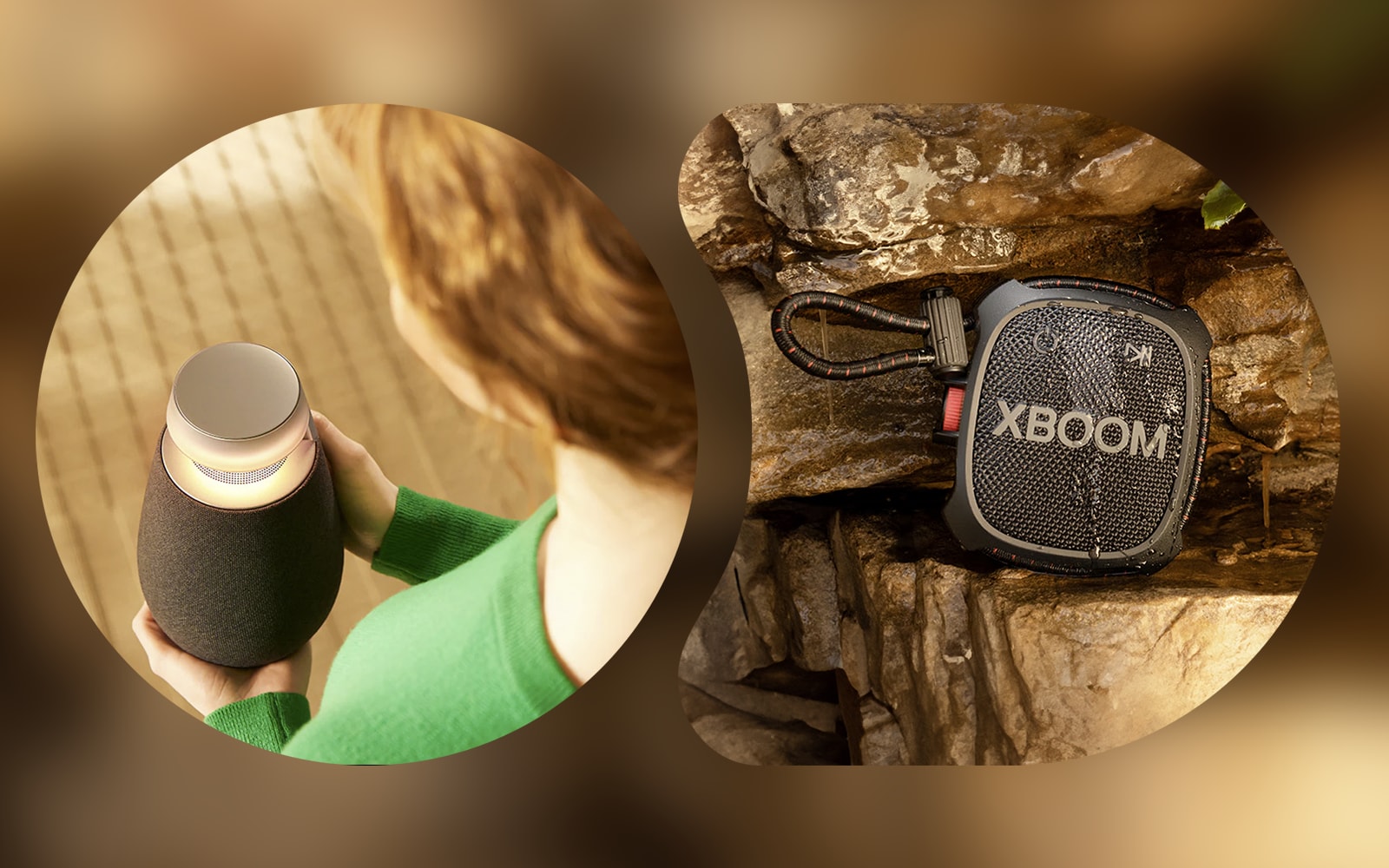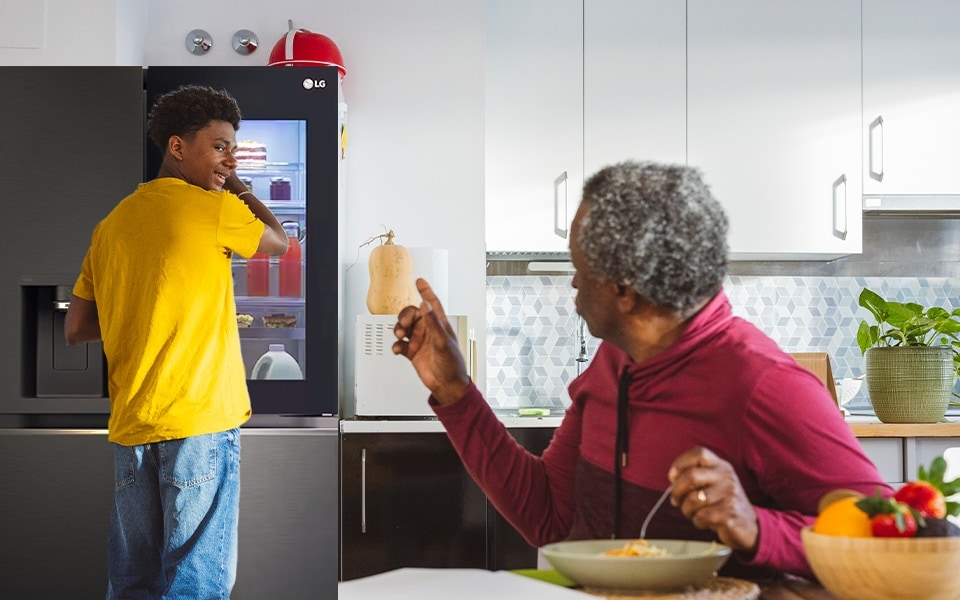We use cookies, including cookies from third parties, to enhance your user experience and the effectiveness of our marketing activities. These cookies are performance, analytics and advertising cookies, please see our Privacy and Cookie policy for further information. If you agree to all of our cookies select “Accept all” or select “Cookie Settings” to see which cookies we use and choose which ones you would like to accept.
LG LAB
What is a Heat Pump?
Photo by LG
How does a heat pump work?
Heat pumps absorb heat from the outside and transfer it indoors. It can also transfer indoor heat to release it outside. It extracts heat from a source such as air, geothermal, or waste heat and transfers it to where it is required. As the heat is transferred, and not generated, it potentially saves energy and it may become cheaper to run appliances like a boiler or electric heater.
Here is how a heat pump works:
1. Heat is sourced from air or ground warmth and transferred through a heat exchange system known as a refrigeration cycle.
2. This heat raises the temperature of the liquid refrigerant in the external heat exchanger of the heat pump and converts it to gas as it evaporates, the refrigerant absorbing heat in the process.
3. The compressor increases the pressure of the gas refrigerant, causing its temperature to rise also.
4. The heat is now passed to your homes central heating system through the internal heat exchanger as the gas refrigerant condenses, the refrigerant rejecting heat as it changes back into a liquid.
5. The refrigeration cycle repeats continuously, absorbing heat from outside (air, ground or water) and rejecting it inside the building to heat your radiators, underfloor heating and domestic hot water.
What are the different types of heat pumps?
Heat pump systems come in different variations:
· Air-source heat pump
· Ground source heat pump
· Water source heat pump
· Hybrid heat pump
Air-source heat pump
An air-source heat pump gathers heat from the outside air through a heat exchanger called an evaporator. The heat is transferred into the interior of a building by the central heating system via the heat pump
Ground-source heat pump
A ground-source heat pump gathers heat by pumping a heat transfer fluid through pipes in the ground, called a ground loop heat exchanger. This heat is transferred into the interior of a building by the central heating system via the heat pump.
Water source heat pumps
Water-source heat pumps gather heat from a body of water such as a lake and transfer it to a heating system. This is not common but can be beneficial and efficient in suitable locations.
Hybrid heat pumps
Hybrid heat pumps use a renewable heat source (heat pump) with another heat source, such as oil, gas or LGP. This is suitable when you want a low carbon solution but design limitations prevent you going 100% renewable.
Advantages of Heat Pumps
Efficient
One of the biggest advantages of heat pumps is their efficiency to potential to conserve energy. As heat pumps transfer heat from one place to another rather than generating heat with fuels such as oil, gas or LPG, it may use less energy to provide heating or cooling solutions for homes.
Low running and maintenance costs
Built with robust designs and less moving parts, heat pumps require very little maintenance unlike a traditional boiler, and the low running costs save energy. An annual checkup and service is advised.
Eliminates the need for fuel storage
There is no need to worry about getting and storing fuel to run the heating system, especially in areas where it is not easily available.
Longer life span
Heat pumps have a running life of about 20-25 years compared to the 10-15 years a traditional boiler gives.
Disadvantages of Heat Pumps
Higher setup cost
The initial setup of a heat pump can be more expensive than setting up a traditional boiler. Although, once installed properly, you may recover the cost during their lifespan because of low running costs.
More planning required
Unlike traditional boilers, heat pumps require more planning and preparation before installation. The system needs to have a well-planned design which includes calculations of heat loss, insulation, size of heat emitters and an assessment of heat output.
More electricity consumption
As heat pumps consumes electricity, you will see an increase in electricity costs if converting from gas or oil. Check with your energy supplier if a cheaper tariff is available based on your heating system.
Not suited for all spaces
If your building is draughty or poorly insulated, it may cost you more to run. If you are working with a tight budget, an ideal next step here is to first get the right insulation done with your old heating system and save up for a future heat pump installation.
How do heat pumps save energy?
A significant percentage of global emissions come from building heating and cooling. To tackle this, homeowners and businesses need to adopt better practices and consider the benefits of switching to heat pump systems.
Heat pumps work by absorbing and transferring heat from sources like air, ground or water to where they are required. They run on electricity thus eliminating the need for generating heat with fossil fuels such as oil and gas. When a system is designed and set up correctly, they can create up to 5 times more output than the energy consumed.
Given that there are many alternative sources of electricity such as solar and wind power, we can use cleaner energy to run heat pumps
Explore LG’s Air-to-Water Heat pump systems for an innovative heating solution for your home.
.jpg)
.jpg)
.jpg)
.jpg)


